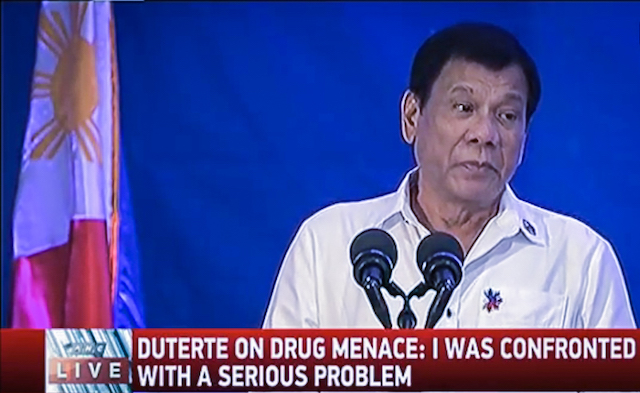Across the Atlantic, Donald Trump is about to stomp into the White House and slap his surname onto the front of the place. Trump has been elected on a platform to end free trade, seal the border with Mexico and get tough on Muslims at home. Far from fascism, Trump stands for the same all-American nativism going back to the Know Nothing movement. Trump is the Platonic form of the sinister buffoon. He is Silvio Berlusconi, Nigel Farage and Louis Bonaparte, fused into one and timesed by several billion dollars. The Donald is the idol of all populist charlatans.
A spectre is haunting the world: the spectre of populism! Over the summer, Brexit represented a break with the post-war European settlement. Britain’s leave could be the catalyst for other European states to follow. The far-right see the vote as a ‘patriotic spring’. Europe sees itself as besieged by refugees, and demagogues across the continent are salivating. Europeans can no longer sneer at the vulgar stupidity of American politics.
Austria is set to hold a new round of elections before the year is out. This is after the country almost elected a crypto-Nazi for president in a disputed vote – marked by a gap of just over 30,000 votes. Next year, France will hold elections, where Hollande could easily be thrown out. Nicolas Sarkozy is running again, however, Marine Le Pen and the Front National may be about to make their breakthrough. The possibility of fascism coming back to post-war Europe is more real than ever before.
Scottish economist Mark Blyth has pointed out President Hollande has an approval rating of around 4%, whereas the Front National has 40% of the intended vote. These figures may tell us a lot, or a little. What is clear is that the centre is no longer holding. If the right is split between Juppe and Sarkozy, Le Pen may have a serious chance against Hollande. Naturally, liberals fear the sun may be setting on democracy in the West.
https://www.youtube.com/watch?v=4JPm2nPfz7M
At the BBC, Ben Wright seems nostalgic for the days when politics were safe and boring. He wonders if liberal democracy has fallen in on itself with Brexit and Trump. Wright refers us to the words of the Hungarian leader Victor Orban, who celebrated Trump’s victory as the end of “liberal non-democracy”. Everywhere the centre-left and the centre-left are on the defensive, losing ground to insurgent candidates.
“For people who have enjoyed the political stability and economic opportunities delivered by decades of liberal democracy these are bewildering, unsettling times,” Wright says. His words reveal more than he may have intended. The economic and political consensus has suddenly found itself at odds with democratic protocol. Putting it simply, the people are voting the wrong way. This requires explanation.
It’s no coincidence that with the rise of Trump we have heard more and more about ‘post-truth’ politics. Some might even say we’ve entered a post-satirical age. It’s not hard to see why people are talking this way. Indeed, the facts of Trump’s political history don’t seem to matter. Nor does the truth seem to hold weight in concrete discussions of social issues. Populism doesn’t need facts to win. It just needs anger.
All this talk may be symptomatic of the collapse of the centre ground. Many liberals still can’t read the writing on the wall, and they seek convenient explanations of their predicament. Swarms of irrational people must be to blame. They just can’t see the truth any longer. They don’t know what’s good for them. If only we could get back to an honest debate, the people would see. This narrative fits well with liberals retreating from the ballot box.
Mark Blyth argues that it’s the technocrats who created this “crisis of democracy”. The British ruling class created the conditions for Brexit, just as the EU fell short of democratic hopes. Likewise, the Democrats failed to engage the needs of the American working class (though it is exaggerated just how much Trump soaked up this base). In many cases, the electorates are left disillusioned, so they have withdrawn from conventional politics.
https://www.youtube.com/watch?v=x2VUFjSWN2w
Early warning signs of what was coming to the US were evident in the Philippines. The former US colony elected its own version of Donald Trump. I’m referring to Rodrigo Duterte, also known as ‘The Punisher’. So-called because Duterte is accused of relying on death squads to wipe out drug dealing and petty crime in Davao City. “I don’t care if I burn in hell, as long as my people live in paradise,” Duterte has said to justify himself.
Much like Trump, Duterte broke every rule in the book on the campaign trail. He pledged to kill 100,000 drug dealers in six months. He reveled in scandal and outrage. One minute, the Filipino leader was bragging about his mistresses and how Viagra changed his life, the next he was joking about gang rape. He also catcalled a journalist from the podium at press conferences. Yet the Punisher’s campaign was unstoppable.
Now in power the new government has allowed the police to write up hit lists. Under President Duterte, the urban poor can at least find work by tracking down suspected drug dealers and blowing their brains out. This situation is a product of the disaffection since the end of the Marcos dictatorship. Effectively, the advent of democracy just saw power shift between different sections of the elite.
Contrary to liberal fears, the answer in all cases is greater democracy. If Britain had had more democracy and less inequality in its history, it would not be in the position it is today. The same can be said for the United States and its new president. It’s not down to mass ignorance, it’s down to the failure of politics to address real grievances. Populism taps into widespread anger, it offers quick fixes and false hopes, but not long-term answers.
Photograph courtesy of ANCLive/YouTube. All rights reserved.





